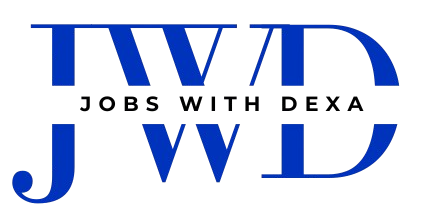Introduction: The Two Roads of a Modern Tech Career
In the world of technology, there are two dominant paths a professional can take: the structured, stable road of full-time employment (FTE), or the flexible, autonomous highway of freelancing and contracting.
Both can lead to a successful and fulfilling career, but they are fundamentally different journeys that cater to different personalities, goals, and life stages.
There is no universally "better" option. The right choice is deeply personal. Are you someone who thrives with the security of a steady paycheck and the camaraderie of a permanent team? Or are you an entrepreneurial spirit who craves the freedom to be your own boss and chart your own course?
This comprehensive guide will break down the pros, cons, and realities of both full-time and freelance work. We’ll compare them across key areas like income, benefits, career growth, and work-life balance to help you perform a crucial self-assessment and decide which path is the right fit for you.
The Case for Full-Time Employment (FTE): The Stability Path
Full-time employment is the traditional model and remains the most popular choice for a reason. It offers a foundation of security and a clear structure for growth.
The Pros:
- Predictable Income: You receive a consistent salary every two weeks, which makes financial planning and major life decisions (like buying a home) much simpler.
- Comprehensive Benefits: This is a huge factor. Employers typically provide health, dental, and vision insurance, retirement savings plans (like a 401(k) with an employer match), and other valuable perks.
- Paid Time Off (PTO): You get paid for vacations, sick days, and holidays. This time to rest and recharge is built into your compensation.
- Structured Career Growth: Large companies have defined career ladders. You have a clear path from Junior to Mid-level to Senior to Lead/Principal, often with access to mentorship and training programs.
- Deep Team Integration: You become a core part of a team, building deep relationships and working together towards a long-term mission. You get to see a product evolve over years.
- Less Administrative Burden: The company handles your taxes (W-2 withholding), payroll, and other administrative tasks.
The Cons:
- Less Flexibility: While remote work has changed this, you still generally have less control over your schedule and the projects you work on.
- Fixed Income Potential: Your salary is generally capped within a specific band for your level. It’s harder to dramatically increase your income in a short period.
- Office Politics: Being part of a large organization often means navigating bureaucracy and internal politics.
- Slower Pace of Learning (Potentially): You may spend years working on a single product or within a specific tech stack, potentially slowing your exposure to new technologies.
Who is it for? Full-time work is ideal for those who are early in their career and need mentorship, individuals who value security and predictability, and anyone who enjoys being part of a unified, long-term team.
The Case for Freelancing/Contracting: The Freedom Path
Freelancing means you are running a business of one. You work with multiple clients on a project-by-project basis, offering your specialized skills for a set period or deliverable.
The Pros:
- Massive Earning Potential: Freelancers typically charge a much higher hourly or project rate than their full-time salaried equivalent. A senior freelance developer can easily earn over $200,000 per year.
- Ultimate Flexibility: You are your own boss. You choose which projects to take, when you work, and where you work from.
- Variety of Work: You can work with different clients in various industries, constantly learning new skills and technologies. This keeps the work exciting and your skill set sharp.
- No Office Politics: You are a vendor, not an employee. This allows you to stay above the fray of internal company drama.
- Direct Correlation Between Work and Reward: You directly reap the financial rewards of your hard work and efficiency.
The Cons:
- Income Instability (The "Feast or Famine" Cycle): There will be periods where you have more work than you can handle and periods where you have none. Managing cash flow is a constant challenge.
- No Benefits: You are responsible for buying your own health insurance, funding your own retirement, and managing your own taxes (which are more complicated).
- No Paid Time Off: If you don’t work, you don’t get paid. Vacations and sick days come directly out of your pocket.
- The "Business" of Freelancing: You will spend a significant amount of time on non-billable work: marketing yourself, finding clients, writing proposals, negotiating contracts, and invoicing.
- Isolation: You miss out on the daily camaraderie of a stable team, which can be lonely.
Who is it for? Freelancing is best suited for experienced, self-disciplined professionals who have a strong network, a high tolerance for risk, and an entrepreneurial mindset.
Head-to-Head Comparison
| Feature | Full-Time Employment (FTE) | Freelancing / Contracting |
| Income | Stable, predictable salary | Variable, high potential (feast or famine) |
| Benefits | Included (health, retirement, PTO) | Self-funded, no paid time off |
| Taxes | Simple (W-2, automatic withholding) | Complex (1099, quarterly estimated taxes) |
| Flexibility | Defined by company policy | Total control over schedule and location |
| Career Growth | Structured, clear promotion path | Self-directed, based on portfolio and network |
| Work Variety | Focused on one product/company | High variety across different clients and industries |
| Job Security | High (relative to freelancing) | Low (contracts end, clients can disappear) |
| Admin Burden | Low | High (sales, marketing, invoicing, etc.) |
The Hybrid Approach: Can You Have It All?
A growing number of tech professionals are opting for a "portfolio career" that blends both worlds. This could look like:
- Working a stable, 3-day-a-week part-time job and freelancing for 2 days.
- Having a full-time job and taking on small, manageable freelance projects on the side for extra income and skill development.
This approach can offer a great balance of stability and flexibility but requires excellent time management to avoid burnout.
Conclusion: Define Your Own Success
The debate between full-time and freelance work isn’t about which is objectively better, but which is subjectively better for you, right now.
Perform a self-assessment. What are your financial needs? How much risk are you comfortable with? What energizes you—the deep focus of a single mission or the dynamic challenge of juggling multiple projects? Your answer may change throughout your career. A junior developer might start full-time to learn and grow, then transition to freelancing as a senior to maximize income and flexibility.
Ultimately, both paths offer the opportunity to build an incredible career in technology. The key is to choose the one that aligns with your personal values, your financial goals, and your definition of a successful and fulfilling life.

